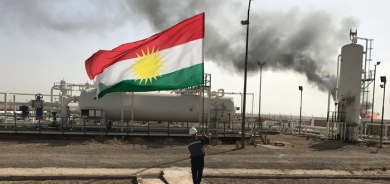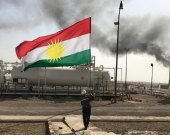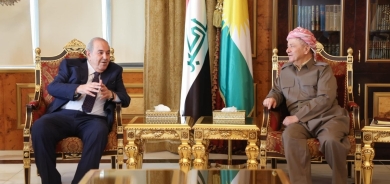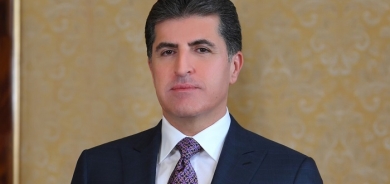Iraq's Foreign Minister Reaffirms No Agreement with Turkey on Troop Deployment

The Deputy Prime Minister and Foreign Minister of Iraq, Fuad Hussein, chaired a meeting of the Higher Security Committee today, emphasizing Iraq's commitment to its territorial integrity amidst regional tensions. The meeting included key security figures such as Minister of Defense Thabet al-Abbasi, National Security Advisor Qasim al-Araji, Minister of Interior of the Kurdistan Region of Iraq Rebar Ahmed, and the Head of the Intelligence Service.
In a subsequent interview with an Iraqi TV channel, Minister Hussein addressed concerns regarding Turkish military presence in Iraq, categorically stating, "No Turkish troops will be deployed into Iraqi territory, nor is there an agreement about that."
Minister Hussein referred to a draft agreement from the 1980s, signed during the Ba'ath regime by then-Foreign Minister Tariq Aziz and his Turkish counterpart. This draft allowed for temporary military operations within a five-kilometer stretch inside Iraq for 72 hours. However, Hussein clarified that this was not extended and emphasized, "What exists is only a memorandum of understanding, not an agreement."
Turkey's current demands focus on preventing activities by the PKK, a party in Turkey, in the border areas. Minister Hussein noted, "There is no agreement between Iraq and Turkey," underscoring the limited nature of the past understanding.
Regional Tensions and Security Concerns
Minister Hussein also addressed the broader security landscape in the Middle East, citing the ongoing conflict between Israel and Hamas. He stressed that "the whole region is concerned about the security and stability in the Middle East," noting that regional tensions inevitably impact all countries involved.
The minister expressed particular concern over the situation in Gaza, where recent violence has exacerbated tensions. "The killing of women and children and forcing civilians to leave has triggered the whole atmosphere," he said. Hussein also referenced existing conflicts involving Iran, the United States, Israel, and Hezbollah, highlighting the intricate and volatile nature of regional dynamics.
Impact on Iraq
Minister Hussein emphasized that escalating tensions between Iran and the United States could directly affect Iraq, both geographically and socially. He reiterated that "the security and stability are interrelated," stressing that complications in any Middle Eastern country can have a domino effect across the region.
In response to inquiries about Hamas’ presence in Iraq, Hussein stated unequivocally that "there is no official decision to open Hamas’ headquarters in Iraq or for Iraq to host Hamas leaders." He affirmed Iraq's stance against becoming a battleground for resolving regional conflicts.
As regional tensions persist, Iraq continues to navigate complex diplomatic and security challenges, aiming to maintain stability and sovereignty amid an increasingly turbulent geopolitical environment.















